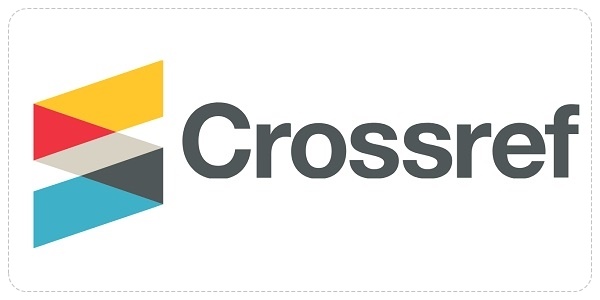MODEL PEMBELAJARAN BERBASIS PROYEK DALAM MENINGKATKAN KEMAMPUAN DAN KEPERCAYAAN SISWA
Abstract
Abstrak
Penelitian ini dilaksanakan untuk mengembangkan bahan ajar ilmu ekonomi untuk meningkatkan kemampuan dan kepercayaan diri siswa SMA dalam pembelajaran ekonomi. Penelitian juga difokuskan untuk memberikan pengalaman kepada guru secara khusus dalam mengembangkan bahan ajar menggunakan project based learning serta menerapkan dalam pembelajaran. Tujuan penelitian ini adalah untuk menghasilkan produk bahan ajar SMA berbasis model PJBL yang dapat digunakan oleh guru di sekolah untuk meningkatkan hasil belajar ekonomi siswa. Selain itu, tujuan dari penelitian adalah terjadinya peningkatan hasil belajar dan kepercayaan diri siswa SMA Kota Bengkulu. Penelitian yang akan dilaksanakan adalah peneltian pengembangan (research and development) dan dilanjutkan dengan eksperimen semu (quasi eksperiment) yang berkolaboratif dengan guru kelas. Tahapan penelitian yang akan dilaksanakan, yaitu: (1) tahap persiapan, (2) tahap pengembangan, (3) tahap eksperimen, (4) tahap evaluasi. Pada tahap pengembangan bahan ajar menggunakan model Plomp (2010) yang meliputi preliminary research, prototyping phase, dan assessment phase. Selanjutnya, pada tahapan penerapan dilaksanakan eksperimen kolaboratif dimana pelaksanaan pembelajaran bekerjasama dengan guru dan disrancang secara daring. Hasil penelitian ini adalah pembuatan bahan ajar yang memenuhi kriteria yang valid dan praktis dan ada pengaruh bahan ajar berdasarkan pembelajaran proyek pada kemampuan dan kepercayaan diri siswa.
Abstract
This research was conducted to develop economics teaching materials to increase the ability and confidence of high school students in learning economics. Research is also focused on providing experience to teachers specifically in developing teaching materials using project-based learning and applying it in learning. The purpose of this study was to produce high school teaching materials based on the PPA model that can be used by teachers in schools to improve student learning outcomes. In addition, the aim of this research is to increase learning outcomes and self-confidence of Bengkulu City Senior High School students.The research that will be carried out is development research (research and development) and followed by a quasi experiment (quasi experiment) that collaborates with class teachers. The research stages to be carried out are: (1) the preparation stage, (2) the development stage, (3) the experimental stage, (4) the evaluation stage. At the stage of developing teaching materials using the Plomp model (2010) which includes preliminary research, prototyping phase, and assessment phase. Furthermore, at the application stage a collaborative experiment was carried out in which the implementation of learning was collaborative with the teacher and designed online.The results of this study are the making of teaching materials that meet valid and practical criteria and there is an effect of teaching materials based on project learning on students' abilities and self-confidence.
Keywords
Full Text:
PDF (Bahasa Indonesia)References
Arends, R., & Kilcher, A. (2010). Teaching for student learning: Becoming an accomplished teacher. Routledge.
Eggen, P., & Kauchak, D. (2012). Strategi dan model pembelajaran mengajar konten dan keterampilan berpikir. Pearson Educational, Inc.
Filcik, A. et al. (2012). The effects of project-based learning (PjBL) approach on the achievement and efficacy of high school mathematics stu-dents: a longitudinal study investigating the ef-fects of pjbl approach in mathematics educa-tion. Proceedings of The National Conference in Undergraduate Research (NCUR), Weber State University, Utah., 3, 29–31.
Fitria, D., Ilhami, M. D., & Susanti, M. (2020). Project Based Learning Model in Improving The Ability and Trust. International Journal of Science, Technology & Management, 1(3), 237-243.
Gómez-Pablos, V. B., del Pozo, M. M., & Muñoz-Repiso, A. G. V. (2017). Project-based learning (PBL) through the incorporation of digital technologies: An evaluation based on the experience of serving teachers. Computers in Human Behavior, 68, 501-512.
Gufron, M., R. (2010). Teori-teori psikologi. Ar-Zuzz media.
Guo, S., & Yang, Y. (2012). Project-based learning: an effective approach to link teacher profession-al development and student learning. Journal of Educational Technology Development and Ex-Change, 5(2), 41–56.
McArdle, G. (2011). Instructional Design for Action Learning. Journal of European Industrial Training, 35(5), 515-518.
Mudlofar, A. (2012). Aplikasi Pengembangan Kuriku-lum Tingkat Satuan Pendidikan dan Bahan Ajar dalam Pendidikan Islam. Rajawali Pers.
Patton, G. R. (2012). Work that matters: the teacher’s guide for project based learning. The Paul Hamlyn Foundation.
Prastowo, A. (2012). Panduan Kreatif Membuat Bahan Ajar Inovatif. Diva Press.
Retnawati. (2014). Membuktikan validitas instrumen dalam pengukuran. Evaluation-Edu. http://www.evaluation-edu.com.
Santoso, P. (2017). Penggunaan Model Pembelajaran Project Based Learning (PBL) Sebagai Upaya Peningkatan Hasil Belajar Ekonomi. Prosiding Seminar Pendidikan Ekonomi Dan Bisnis UNS, 3(1), 1–7.
Susanti, M., Herfianti, M., Damarsiwi, E. P. M., Perdim, F. E., & Joniswan. (2020). Project-based learning model to improve students’ ability. International Journal of Psychosocial Rehabilitation, 24(2).
Titu, M. A. (2015). Penerapan model pembelajaran project based learning (PjBL) untuk meningkatkan kreativitas siswa pada materi konsep masalah ekonomi. In Prosiding Seminar Nasional (Vol. 9).
DOI: https://doi.org/10.17509/pdgia.v18i2.26808
Refbacks
- There are currently no refbacks.
INDEXED BY

This work is licensed under a Creative Commons Attribution-ShareAlike 4.0 International License















